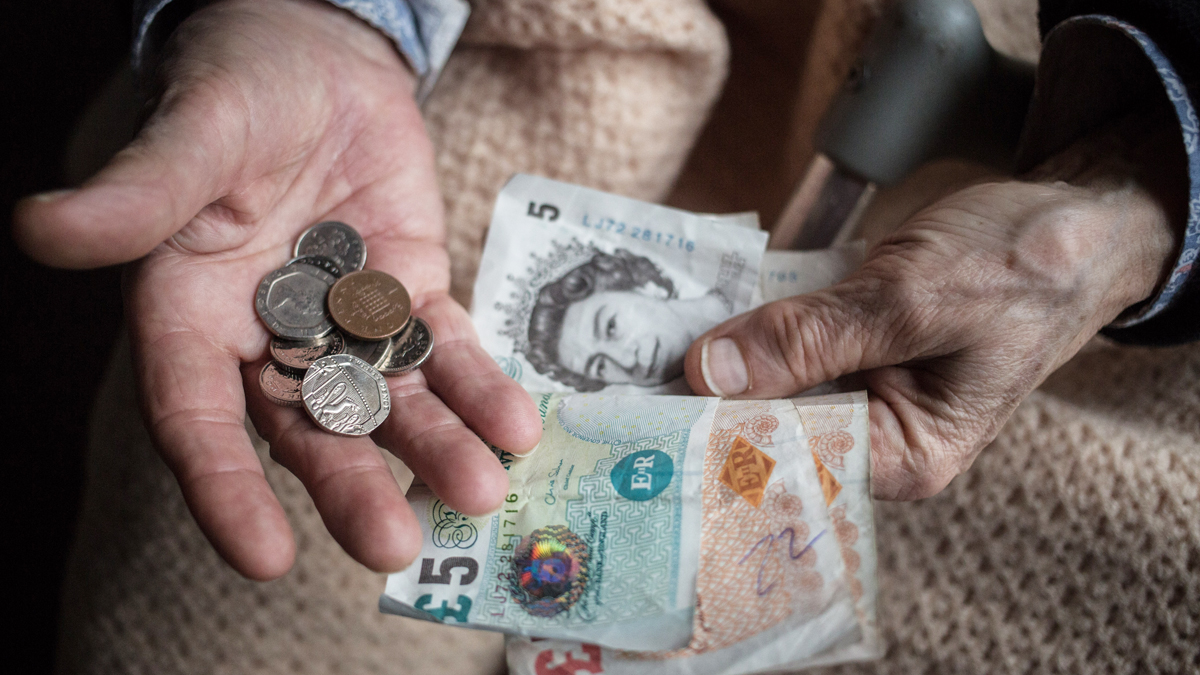UK household income surges but still lags boom-era peak
Recovery gathers pace, but critics point to rising inequality and tax burden on poor

A free daily email with the biggest news stories of the day – and the best features from TheWeek.com
You are now subscribed
Your newsletter sign-up was successful
The UK economic recovery is gathering pace according to official data, with growth figures for the first three months of 2015 revised upwards and the disposable income enjoyed by UK households now thought to be surging at the fastest rate since 2001.
Reuters reports the Office of National Statistics has, as expected, revised growth from January to March from 0.3 per cent to 0.4 per cent, and on an annualised basis for financial year which ended in April from 2.5 per cent to 2.9 per cent. It also updated the figure for 2013/2014 to three per cent, the fastest growth seen since 2006, before the financial crisis.
Real disposable income, that is income after tax and adjusted for inflation, has increased by 4.5 per cent in the past year. This is the fastest rate in 14 years and is the result of a combination of accelerating wages and negligible inflation.
The Week
Escape your echo chamber. Get the facts behind the news, plus analysis from multiple perspectives.

Sign up for The Week's Free Newsletters
From our morning news briefing to a weekly Good News Newsletter, get the best of The Week delivered directly to your inbox.
From our morning news briefing to a weekly Good News Newsletter, get the best of The Week delivered directly to your inbox.
Critics have, however, noted that real incomes remain depressed relative to their boom-era peak, with The Guardian and The Times pointing out the £24,500 median earnings figure is around £500 below the inflation-adjusted equivalent for 2007/2008.
The Guardian also notes inequality in the numbers, with pensioners, whose incomes are currently protected by a controversial 'triple lock', enjoying a 7.3 per cent rise in income since pre-crisis days. In contrast non-retired households have seen their incomes fall 5.5 per cent.
The Independent and Daily Mail also highlight tax-take figures, which show the poorest households are paying the largest percentage of their income in taxes. This is because they pay by far the largest proportion on indirect taxes such as VAT, which is applied at the same rate to all taxpayers.
The poorest fifth of households paid out 37.8 per cent of their income in taxes in 2013/2014, compared to 34.8 per cent for the richest fifth. However, the richest fifth paid substantially more in tax, contributing £29,200 compared with £4,900.
A free daily email with the biggest news stories of the day – and the best features from TheWeek.com
-
 What to know before filing your own taxes for the first time
What to know before filing your own taxes for the first timethe explainer Tackle this financial milestone with confidence
-
 The biggest box office flops of the 21st century
The biggest box office flops of the 21st centuryin depth Unnecessary remakes and turgid, expensive CGI-fests highlight this list of these most notorious box-office losers
-
 What are the best investments for beginners?
What are the best investments for beginners?The Explainer Stocks and ETFs and bonds, oh my
-
 Labour shortages: the ‘most urgent problem’ facing the UK economy right now
Labour shortages: the ‘most urgent problem’ facing the UK economy right nowSpeed Read Britain is currently in the grip of an ‘employment crisis’
-
 Will the energy war hurt Europe more than Russia?
Will the energy war hurt Europe more than Russia?Speed Read European Commission proposes a total ban on Russian oil
-
 Will Elon Musk manage to take over Twitter?
Will Elon Musk manage to take over Twitter?Speed Read The world’s richest man has launched a hostile takeover bid worth $43bn
-
 Shoppers urged not to buy into dodgy Black Friday deals
Shoppers urged not to buy into dodgy Black Friday dealsSpeed Read Consumer watchdog says better prices can be had on most of the so-called bargain offers
-
 Ryanair: readying for departure from London
Ryanair: readying for departure from LondonSpeed Read Plans to delist Ryanair from the London Stock Exchange could spell ‘another blow’ to the ‘dwindling’ London market
-
 Out of fashion: Asos ‘curse’ has struck again
Out of fashion: Asos ‘curse’ has struck againSpeed Read Share price tumbles following the departure of CEO Nick Beighton
-
 Universal Music’s blockbuster listing: don’t stop me now…
Universal Music’s blockbuster listing: don’t stop me now…Speed Read Investors are betting heavily that the ‘boom in music streaming’, which has transformed Universal’s fortunes, ‘still has a long way to go’
-
 EasyJet/Wizz: battle for air supremacy
EasyJet/Wizz: battle for air supremacySpeed Read ‘Wizz’s cheeky takeover bid will have come as a blow to the corporate ego’